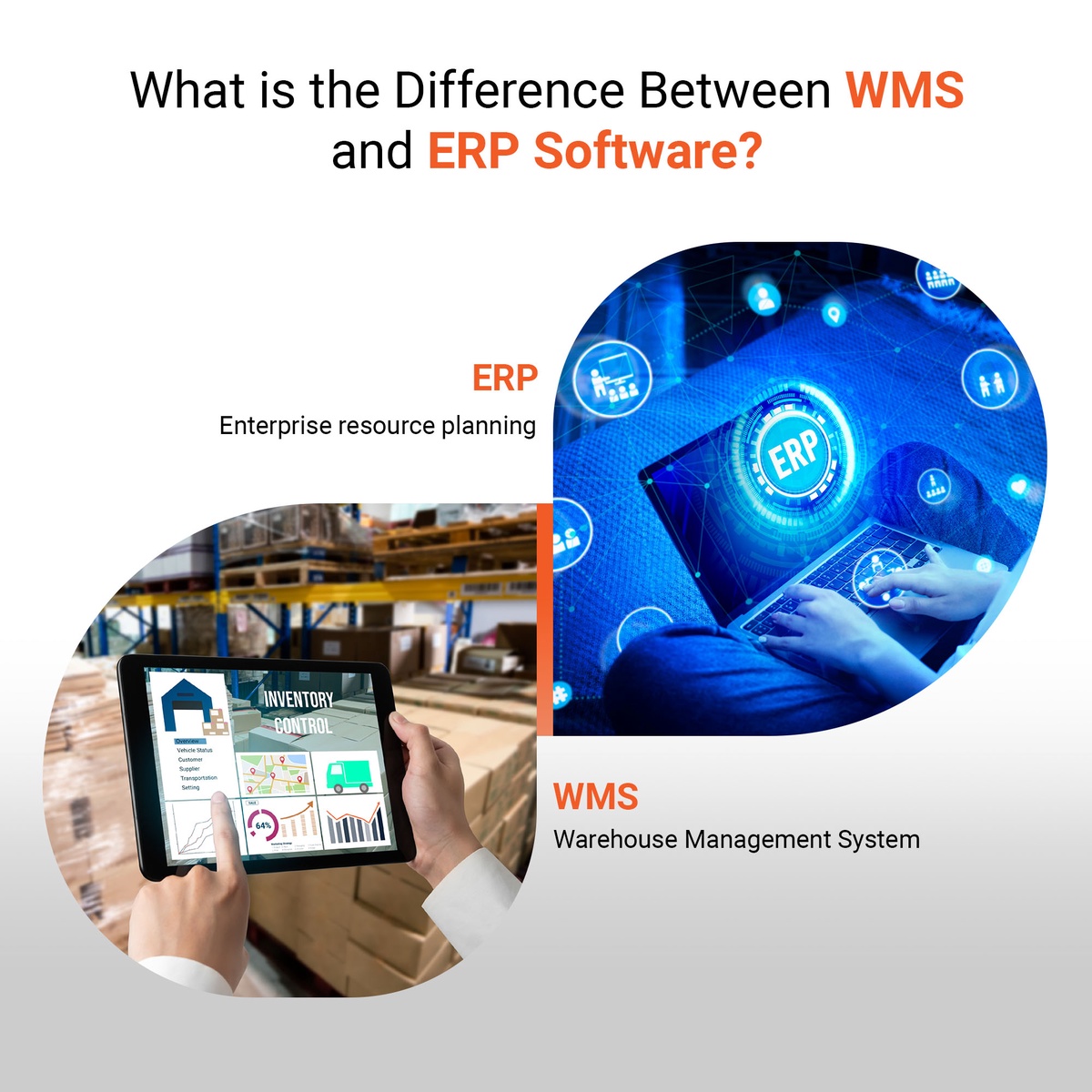In the quest for business software, you must have probably stumbled upon the terms Warehouse Management System (WMS) and Enterprise Resource Planning (ERP) software.
While both solutions offer business management capabilities, they are not entirely identical. In fact, there are specific areas where WMSs truly shine, boasting enhanced functionality and customization options tailored to meet your company's unique needs!
Let’s get to know both the softwares in detail.
Warehouse Management System (WMS)
A warehouse management system, commonly known as WMS, is a software solution designed to assist companies in efficiently managing and overseeing their day-to-day warehouse operations.
From the moment goods and materials arrive at a distribution or fulfillment center until they are dispatched, WMS software plays a crucial role in optimizing the entire process. As an integral part of supply chain management, these systems provide businesses with up-to-date and real-time visibility into their entire inventory, including both warehoused items and those in transit.
Key Features of WMS
- Inventory Control: WMS provides real-time visibility of inventory levels, ensuring accurate stock counts and minimizing the risk of stockouts or overstocking.
- Order Processing: WMS streamlines the order fulfillment process, from order receipt to picking, packing, and shipping, leading to faster and error-free order processing.
- Space Utilization: WMS helps optimize warehouse layouts, maximizing space utilization and minimizing unnecessary movement of goods.
- Shipment Tracking: WMS enables real-time tracking of shipments, allowing businesses and customers to monitor the status and location of their orders.
- Labor Management: WMS offers tools to manage warehouse personnel efficiently, optimizing labor productivity and resource allocation.
Enterprise Resource Planning (ERP) Software
Enterprise resource planning (ERP) is a comprehensive platform utilized by companies to effectively manage and unify essential aspects of their business operations. The significance of ERP software applications lies in their ability to facilitate resource planning through the seamless integration of all necessary processes within a single system. Moreover, ERP software systems play a pivotal role in integrating diverse functions such as planning, purchasing, inventory management, sales, marketing, finance, and human resources, among others.
Key Features of ERP Software
- Data Integration: ERP software consolidates data from different departments, creating a unified view of the organization's operations for enhanced visibility and control.
- Financial Management: ERP handles financial processes, including accounting, financial reporting, budgeting, and asset management, ensuring accurate financial insights and compliance.
- Human Resources Management: ERP streamlines HR tasks, such as payroll, employee records, performance management, and recruitment, optimizing workforce management.
- Customer Relationship Management (CRM): ERP often includes CRM modules to manage customer interactions, sales leads, marketing campaigns, and customer support.
Key Differences Between WMS and ERP Software
Focus and Scope
The fundamental difference between WMS and ERP lies in their focus and scope. WMS is dedicated to warehouse-specific operations, such as inventory management and order fulfilment, ensuring smooth and efficient warehouse functioning. Conversely, ERP software covers a more extensive range of business functions, integrating data and processes across various departments to foster a cohesive organisational ecosystem.
Depth of Functionality
While both systems tackle inventory and supply chain management, WMS offers specialised and in-depth functionalities in this area. In contrast, ERP software excels in providing comprehensive solutions for finance, HR, customer relationship management, and more, empowering businesses with a holistic approach to management.
Integration and Collaboration
WMS typically operates as a stand-alone system, focusing solely on warehouse-related data and operations. In contrast, ERP software emphasizes seamless integration and collaboration among different departments, facilitating efficient data sharing and promoting cross-functional cooperation.
WMS focuses on optimizing warehouse operations, ensuring efficient inventory management and order fulfillment. ERP software, on the other hand, offers a comprehensive approach to business management, integrating data and processes across various departments to foster streamlined operations and data-driven decision-making.
Choose your business software wisely and kickstart your journey towards efficiency and productivity.


No comments yet